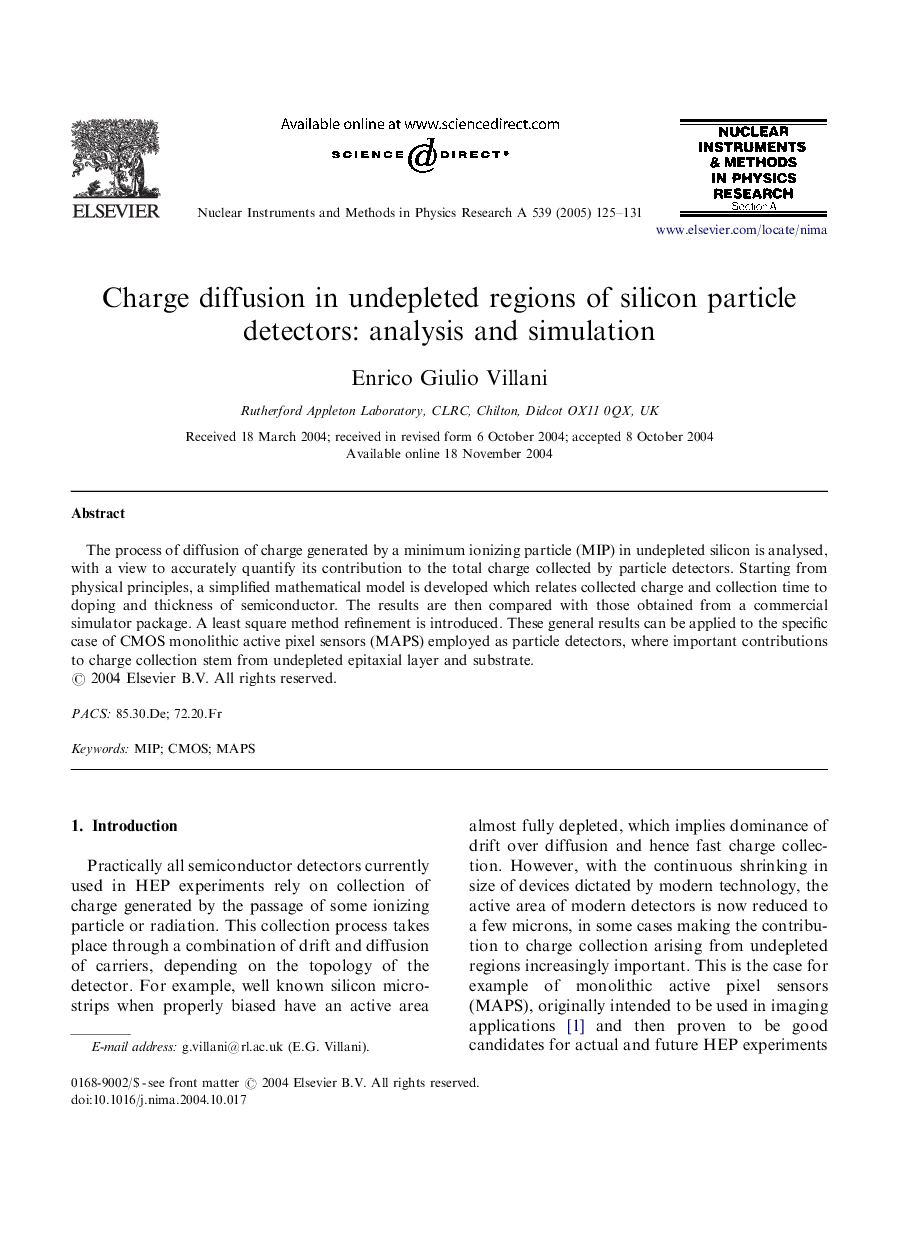| Article ID | Journal | Published Year | Pages | File Type |
|---|---|---|---|---|
| 9845731 | Nuclear Instruments and Methods in Physics Research Section A: Accelerators, Spectrometers, Detectors and Associated Equipment | 2005 | 7 Pages |
Abstract
The process of diffusion of charge generated by a minimum ionizing particle (MIP) in undepleted silicon is analysed, with a view to accurately quantify its contribution to the total charge collected by particle detectors. Starting from physical principles, a simplified mathematical model is developed which relates collected charge and collection time to doping and thickness of semiconductor. The results are then compared with those obtained from a commercial simulator package. A least square method refinement is introduced. These general results can be applied to the specific case of CMOS monolithic active pixel sensors (MAPS) employed as particle detectors, where important contributions to charge collection stem from undepleted epitaxial layer and substrate.
Related Topics
Physical Sciences and Engineering
Physics and Astronomy
Instrumentation
Authors
Enrico Giulio Villani,
